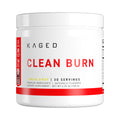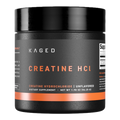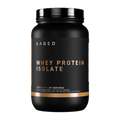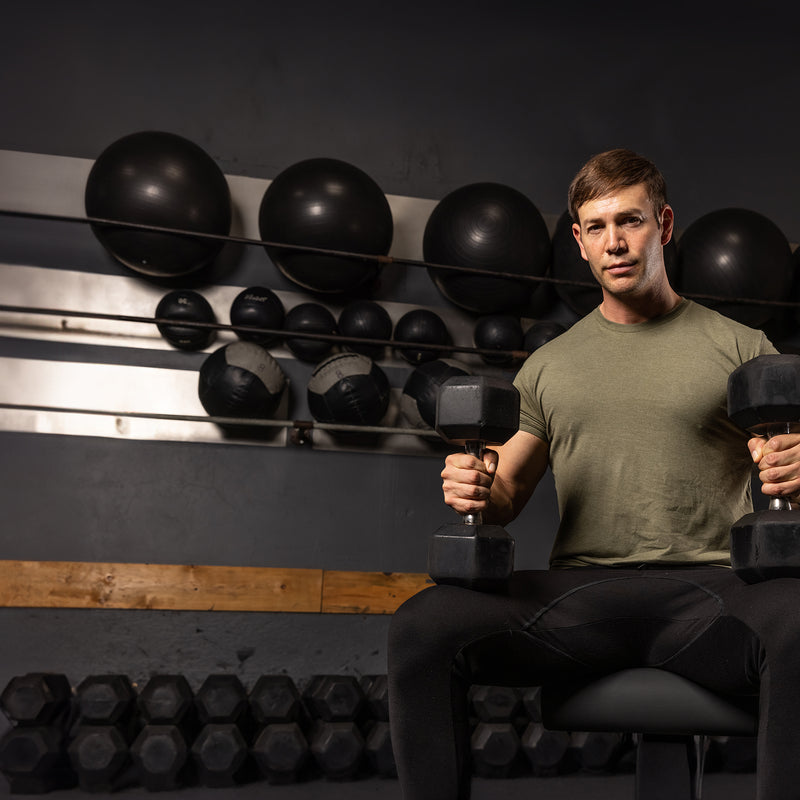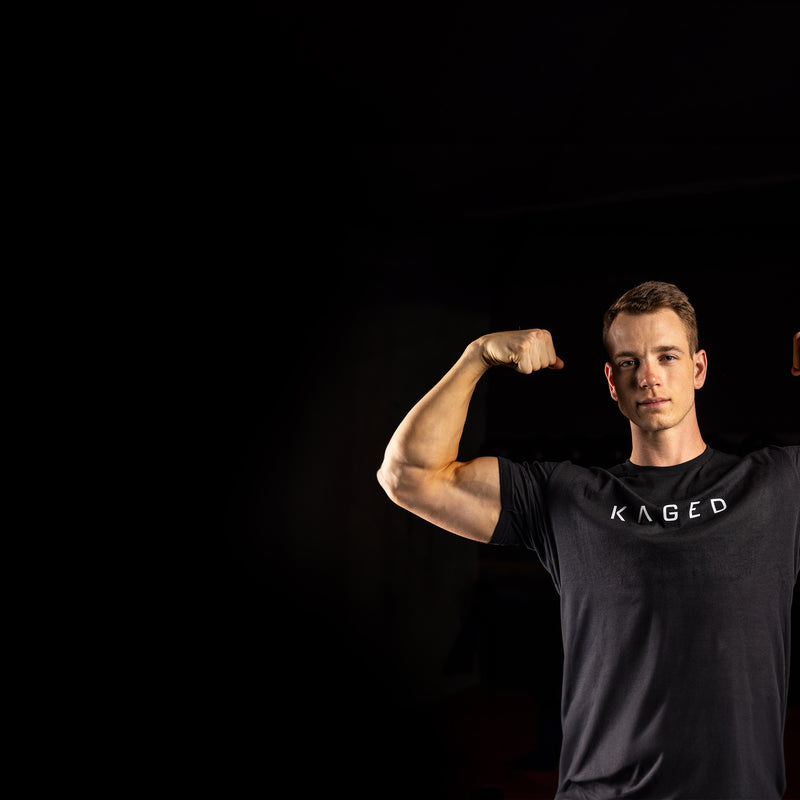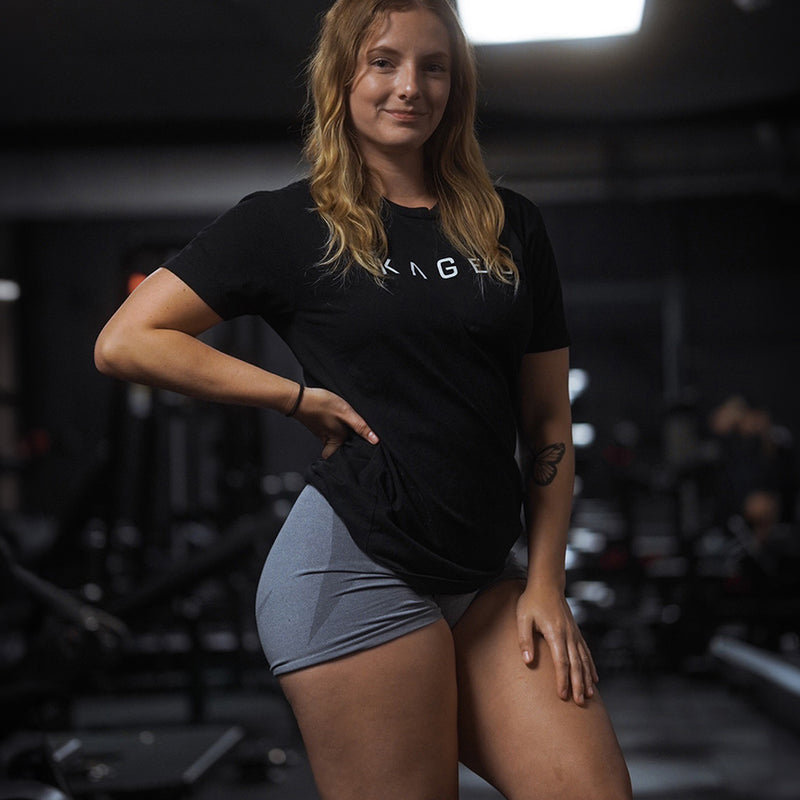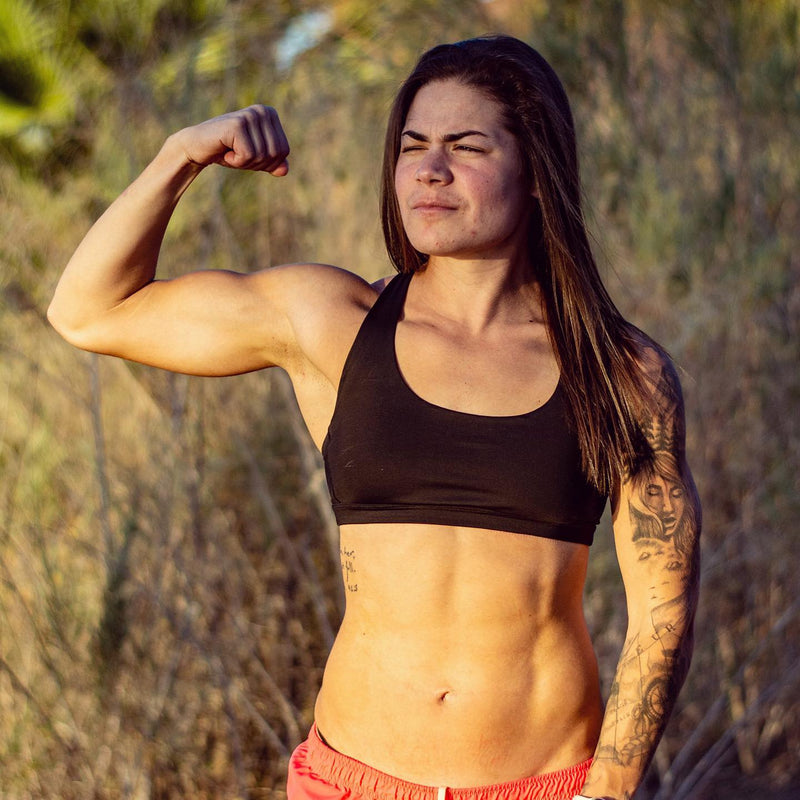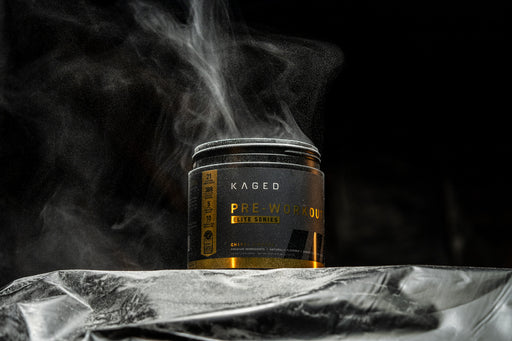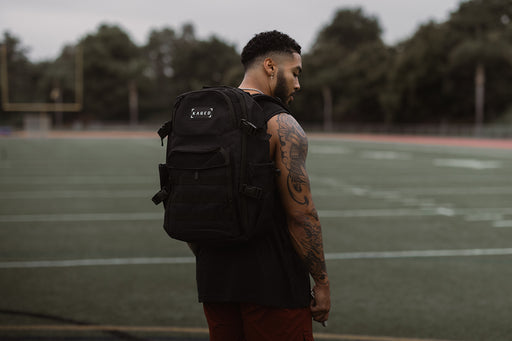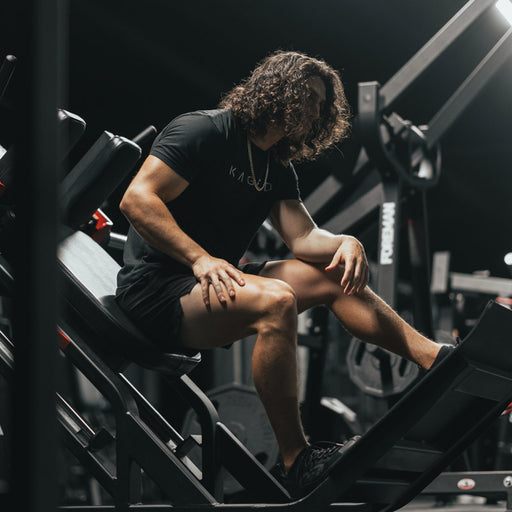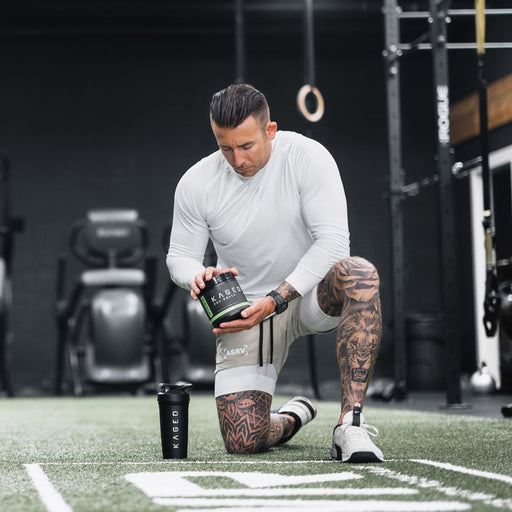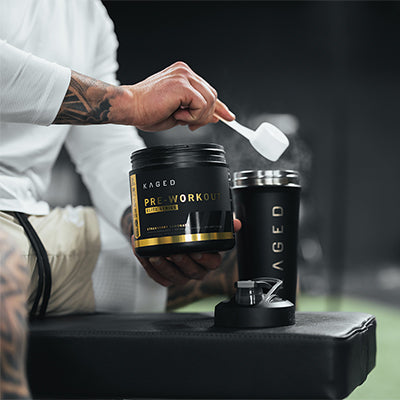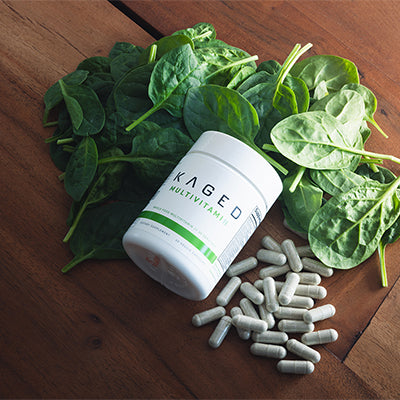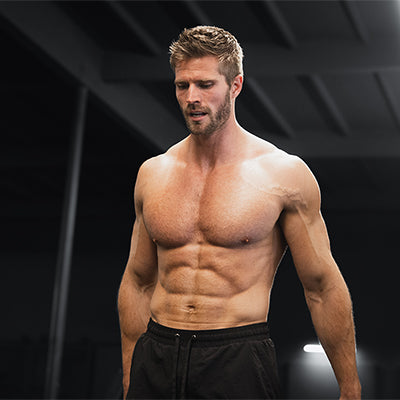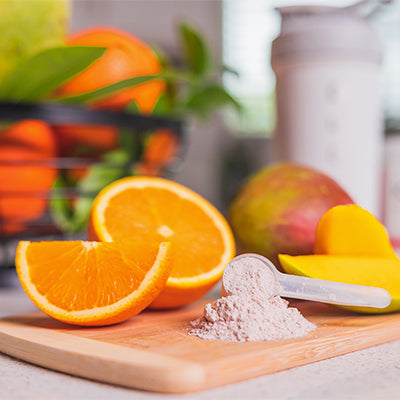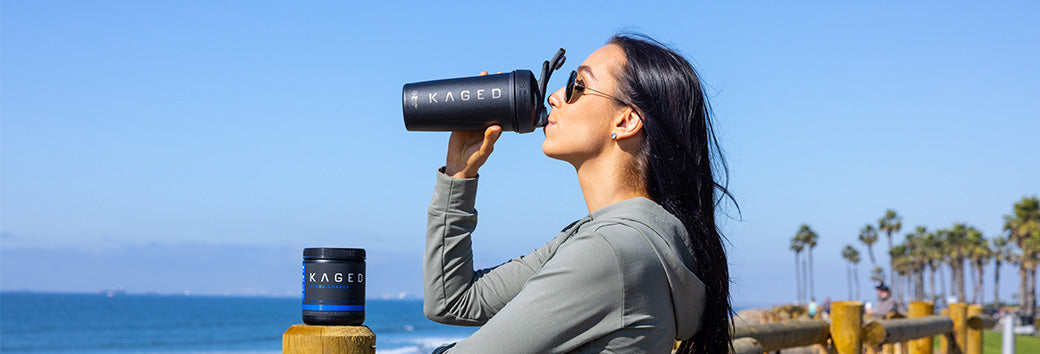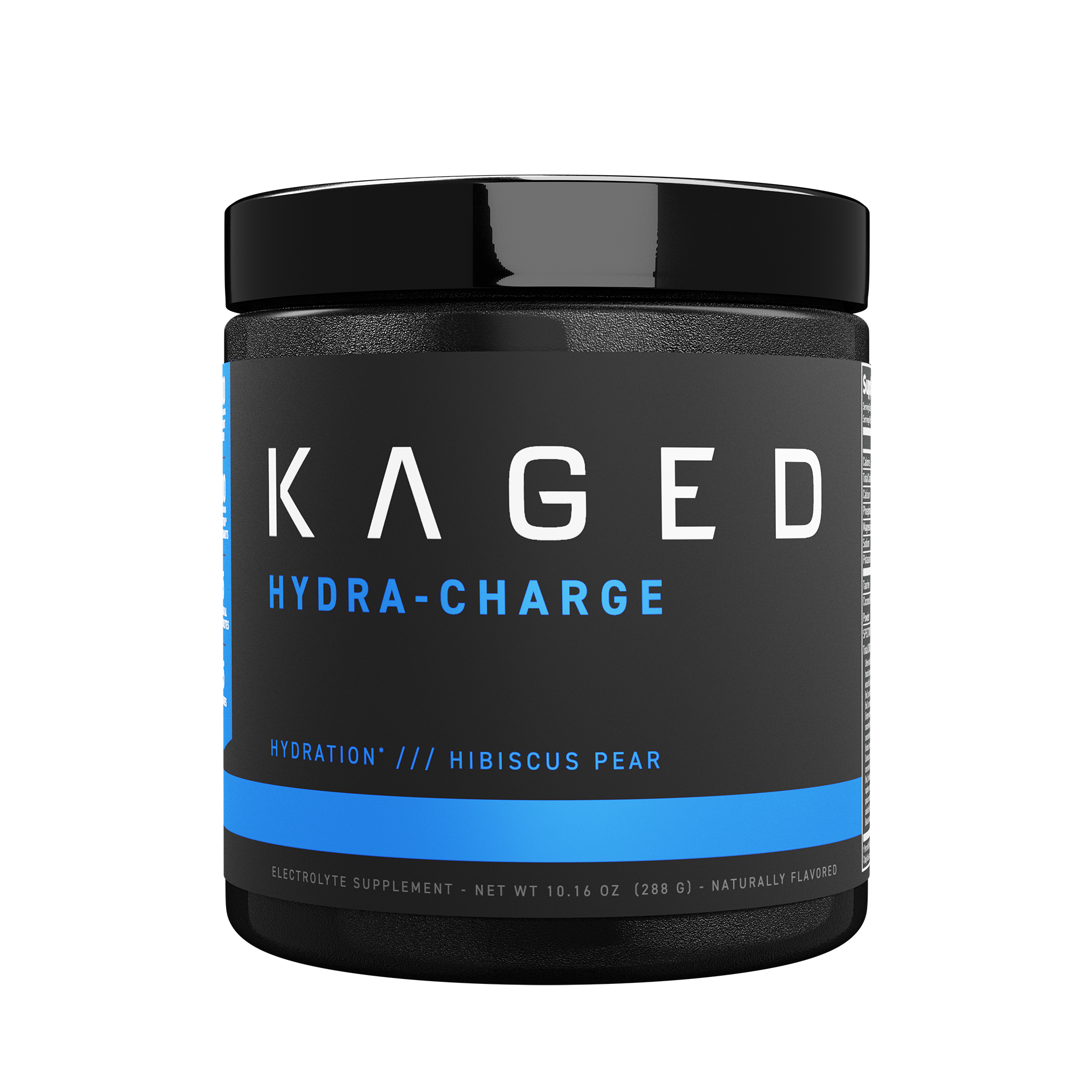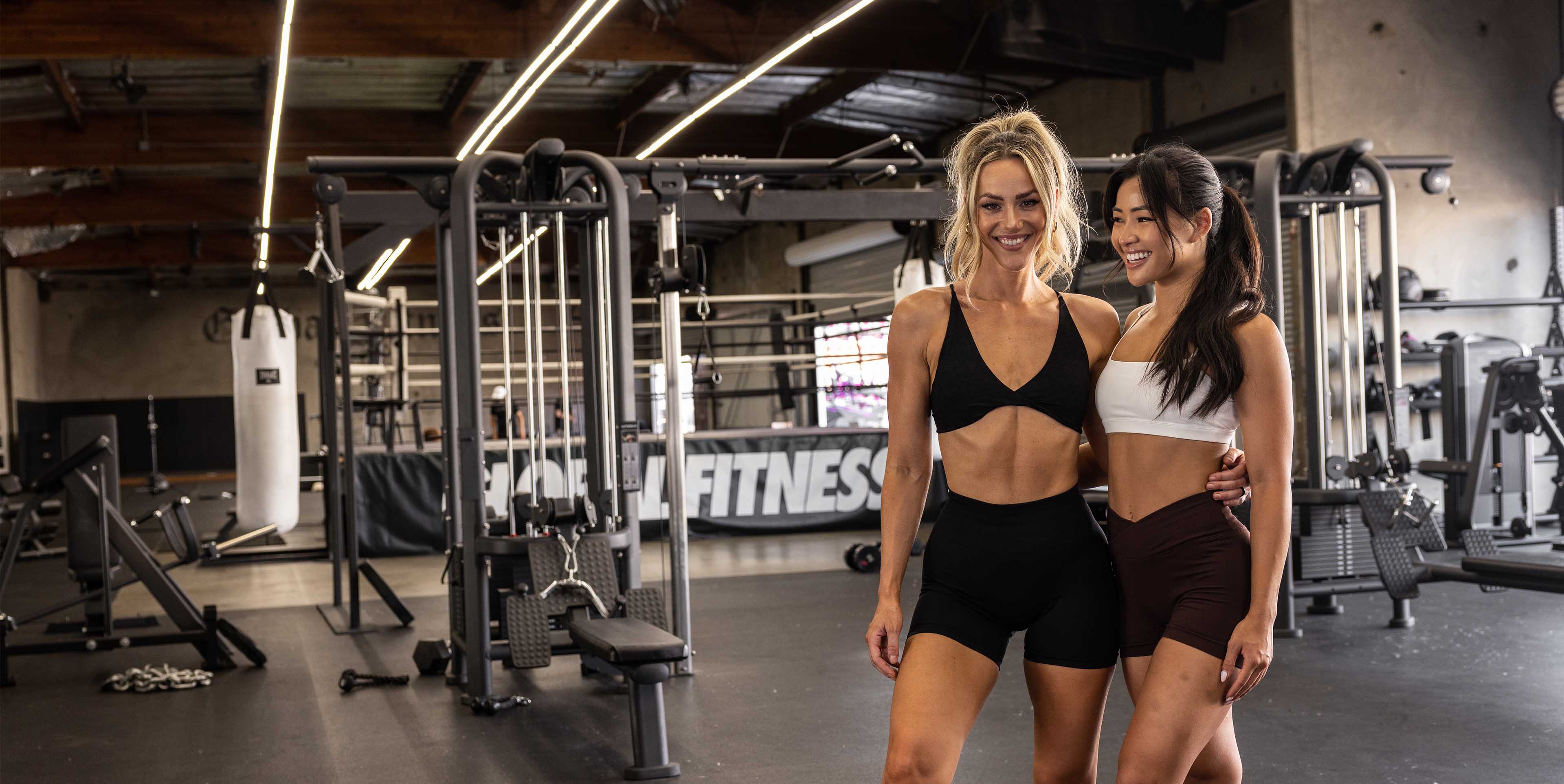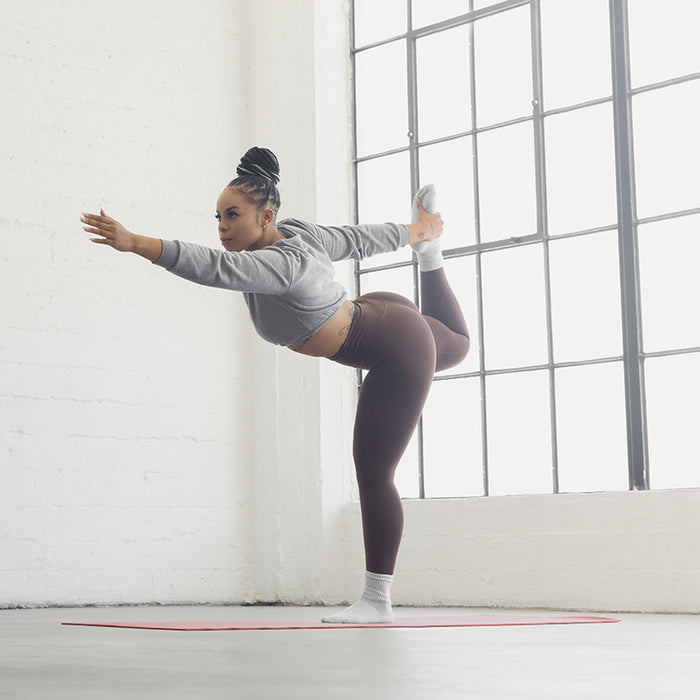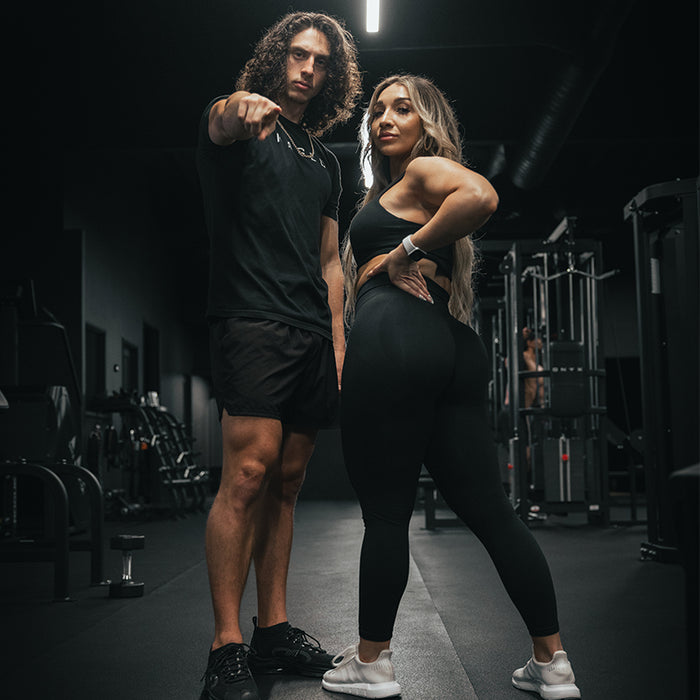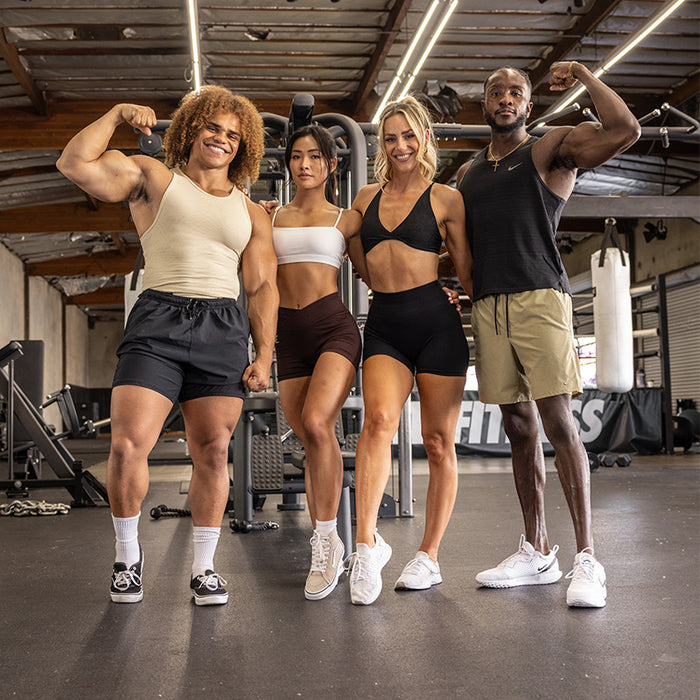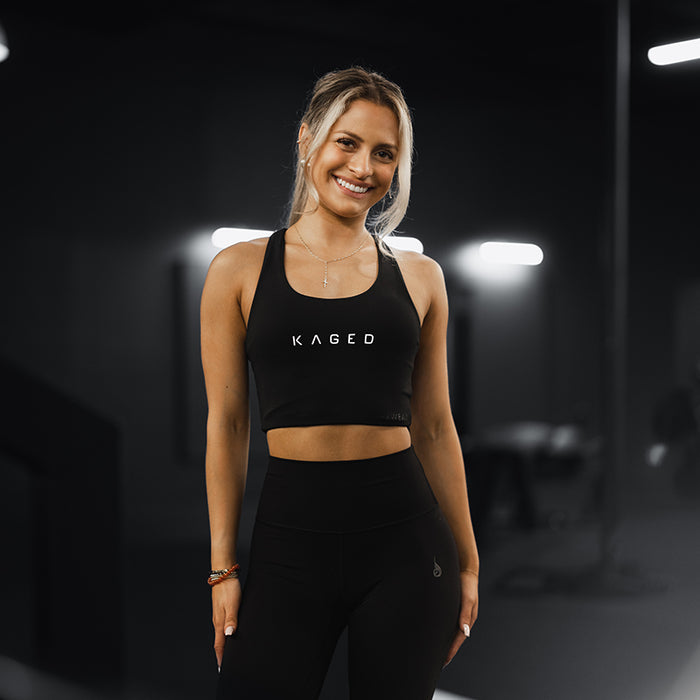Look, you already know that hydration is important.
You know the stats about how much of your body is made up of water, the miracle molecule responsible for life on earth.
You know on the days you don’t drink enough, you don’t feel or perform your best.
What you may not know though, is that water isn’t the only piece of the hydration puzzle. For optimal hydration, water must be in balance with electrolytes.
When creating a peak performance plan, then, a few key questions come to mind:
How much fluids should I be drinking? How do I calculate it? Should I add electrolytes to this equation?
Indirectly, whether your goal is weight loss or muscle gain, you can’t hit your physique and performance goals while neglecting hydration. Today we’ll be talking about the importance of electrolytes and creating a plan for dialing in your hydration.
First, How Much Water Should You Drink?
As a general framework, a good place to start is by taking your bodyweight in pounds, dividing it by two, and drinking that in ounces.
For example, a 128 pound person should drink as a ballpark 64 ounces, or half a gallon. But this isn’t enough, it’s just a starting point.
To dial this in further, it depends on how much you sweat. This in turn depends on a few factors.
First, if it’s hot, that can increase sweat rates by up to one liter per hour. If you’ve ever done hot yoga, you know what we’re talking about here. If you live somewhere where you sweat from walking outside, you’ll have higher fluid demands.
Second, the intensity and length of your exercise causes sweat rates to vary. Typically, this ranges from half a liter to over three liters per hour. [1]
That’s… a lot of water.
The Simple Solution: Weigh Yourself Before and After Training
Weight loss, when it comes to losing fat, does NOT happen during your workout. Non-water weight loss you will see as a trend over time. In the short term, losing or gaining weight is really a reflection of your shift in fluid levels. So if you lost two pounds during your workout, it’s time to replenish with at least 32 oz of fluids.
Fortunately, most gyms have scales in the locker rooms that make this an easy addition to your routine.
Don’t Forget to Include Electrolytes When Your Replenish
In this equation, we can’t forget about electrolytes. Your sweat contains critical electrolyte salts. In a study examining electrolyte sweat losses during exercise, researchers observed that total sodium and chloride losses increased by 150% with increased exercise intensity. [2]
A second study focusing on electrolytes examined if changes in sodium serum levels were related to fluid balance in seasoned triathletes. The researchers noted that sodium serum levels in both men and women were correlated to changes in body mass during the event. [3]
Simply, you also need electrolytes. This combination of losing fluids and electrolytes is why it can be a great idea to sip on Hydra-Charge while you work out.
But what are they and why are they so important?
The Importance of Electrolytes
Electrolytes consist of minerals or salts that dissolve in fluids, which then separate into positively and negatively charged ions.
These electrically charged ions act as messengers throughout the body. They play important roles in various physiological processes including regulation of pH levels, nerve cell signaling, and muscle contraction. They also regulate our fluid balance by influencing absorption, retention, and transport in and out of cells.
There’s no life without water, and there’s no human life without electrolytes, either. What are the most important electrolytes to replenish?
Key Electrolytes
For optimal function, we need a few different electrolytes. Some of the most important include the following.
Calcium
plays an important role in supporting bone and teeth health. It also plays a role in nerve signal transduction.
Common food sources: milk, cheese, sardines, chia seeds, soybeans, and sesame seeds.
Chloride
Chloride regulates fluid and pH balance in the body.
Common food sources: Table salt, sodium chloride, provides one of the most common sources of this. Most sodium rich foods will contain chloride as well.
Magnesium
Magnesium is involved in over 600 enzymatic reactions in the body. Magnesium plays a role in bone formation and the synthesis of both DNA and RNA. This mineral has risen to popularity in recent years thanks to its reports that it helps everything from sleep to performance. It’s also one of the top vitamins and minerals we tend to be lacking.
Common food sources: dark chocolate, pumpkin seeds, brazil nuts, cashews, spinach, and mackerel.
Phosphorous
Phosphorus you won’t hear about as much, but it plays a major role in DNA and RNA synthesis. It’s also involved in supporting bone health as well as muscle contraction and nerve conduction.
Common food sources: poultry, pork, seafood, organ meats, lentils, quinoa, and sunflower seeds.
Potassium
plays a role in skeletal and smooth muscle contraction. And it’s involved in the regulation of fluids and pH in the body.
Common food sources: avocados, sweet potatoes, bananas, coconut water, cantaloupe, apricots, and figs.
Sodium
Sodium supports proper nerve and muscle functioning. It also plays a role in fluid regulation in the body. Our body needs the right amount of sodium in order to regulate things like blood pressure.
Common food sources: salt, broths, cheeses, cured meats, pickles, cottage cheese, soups, and canned foods.
Hydration, Electrolytes and Performance
Hypohydration, or a reduction of total body water, is associated with decreased performance across a range of athletic markers.
Now, you may be thinking, “well of course, I feel terrible when I’m dehydrated.” However, it might not take as much as you expect. Even a low level of dehydration can hinder your performance.
Researchers evaluated 34 studies on the effects of lack of hydration on endurance exercise. The researchers concluded that if an individual loses 2% or more of their body mass in fluid, aerobic exercise and endurance performance becomes impaired. [4] To put this into perspective, this means just 32 ounces of water for a 120 lb person.
In a 2007 issue of Sports Medicine, researchers reviewed the effects of hydration and muscular performance with an emphasis on strength, power, and high intensity endurance exercises. The researchers noted that hypohydration appeared to consistently attenuate strength by about 2%, power by about 3%, and high intensity endurance by about 10%. [5]
In studies examining different team sport athletes, hypohydration was consistently linked with increased ratings of fatigue and perceived exertion. In other words, athletes felt more tired. [6]
Conversely, when athletes have personalized hydration plans, they have improved performance measures.
A study on collegiate athletes from different sports measured the impact that a personalized hydration plan, based on the individual’s sweat rate and sodium loss, had on performance. The athletes in the personalized hydration group showed improved jumping ability, faster tracking of moving objects, and improved heart rate recovery following moderate to hard training. [7]
Simply, better hydration correlates with better performance.

Supplementing with Electrolytes
Drinking plain water can aid in hydration levels, but some research shows that consuming electrolytes in addition to water can assist in improving athletic performance.
A study on trained cyclists examined the effects of salt consumption on dehydrating exercise performed in the heat. The subjects participated in three randomized control trials, as a control group consuming plain water, a moderate salt and water group, and a high salt and water group. At the end of the study, the researchers noted that both of the salt groups had a better time trial performance compared to the control group, showing a 7.4% improvement. [8]
A second study examined the effects of salt supplementation before and during a half ironman event. The group that supplemented with salt had a lower total race time, less reductions in body mass following the race, and higher serum sodium and chloride levels. [9]
In this case those with electrolytes + water outperformed water alone.
How Much Do You Need?
Everyone loses fluid at a different rate, making their hydration needs different. To calculate what you need, we can use the sweat rate calculation to help us perform better. To do your calculation, you will need to know your body weight in kg, and a water bottle filled with a measured amount of water.
Determine Your Sweat Rate
As mentioned, you simply need to figure out how much you sweat, and replenish that.
Body weight prior to training – body weight after training = weight loss (g)
Weight of water bottle before training – weight of water bottle after training = fluid volume consumed (mL)
(Weight Loss + Fluid Volume Consumed) / Time = Sweat Rate (ml/min)
Add Hydra-Charge or Hydration Elite to Your Intra and Post-Workout Routine

Use your sweat rate number as a general idea of your fluid consumption needs around training.
Remember that different factors impact your sweat rate. If you measure it under different conditions, (e.g., light training vs hard training, cardio vs lifting, cooler vs humid climates) you’ll get different numbers. Over time, you’ll get a better idea of how much you need to hydrate based on your workout.
For optimal hydration, you’ll want to include electrolytes in your intra-workout and post-workout hydration plan. To cover your bases here, simply add a scoop of Hydra-Charge.
With 5 key electrolytes, just 1 gram of sugar, and delicious taste, it has everything you need to stay optimally hydrated.
In addition, Hydra-Charge includes Spectra™antioxidants for immune support, taurine to support your endurance, and freeze-dried coconut water. It comes in many incredible flavors.
For Your Most Intense Training, Choose Kaged Hydration Elite

Hydration Elite contains more electrolytes than Hydra-Charge and additional ingredients like elevATP® to support performance. In comes in a delicious lemon lime flavor.
SHOP NOW
For further hydration support, consume electrolyte-rich food sources throughout the day to ensure all your needs are covered. If you do prolonged, frequent, or very intense exercise on a regular basis, supplementing with an electrolyte drink mix is a smart choice.

